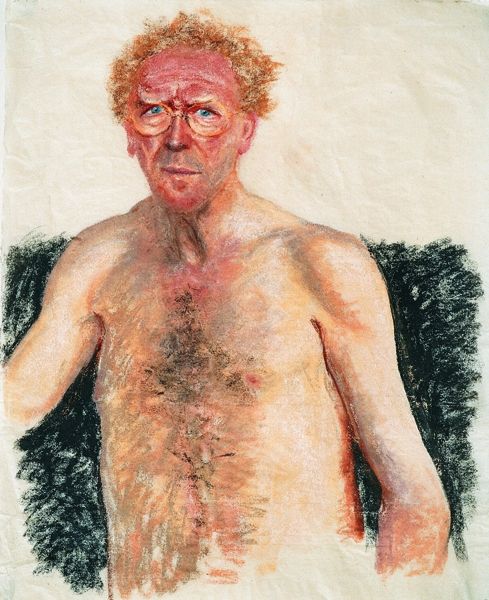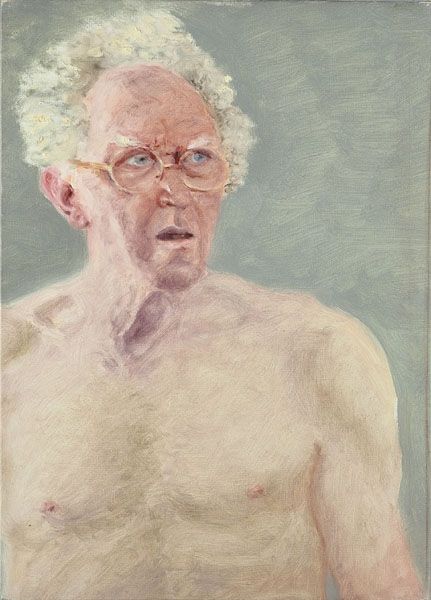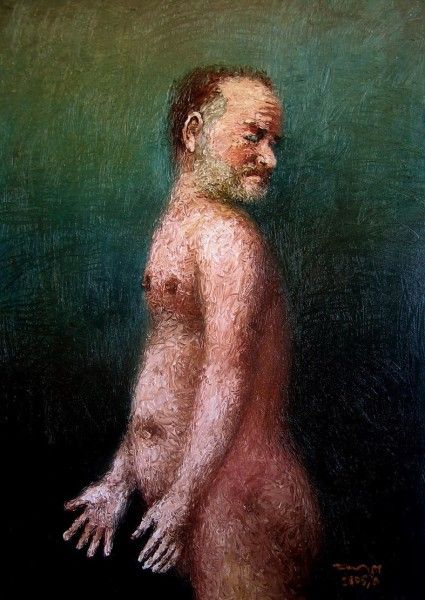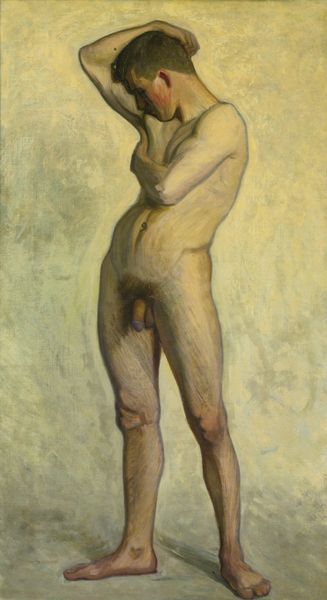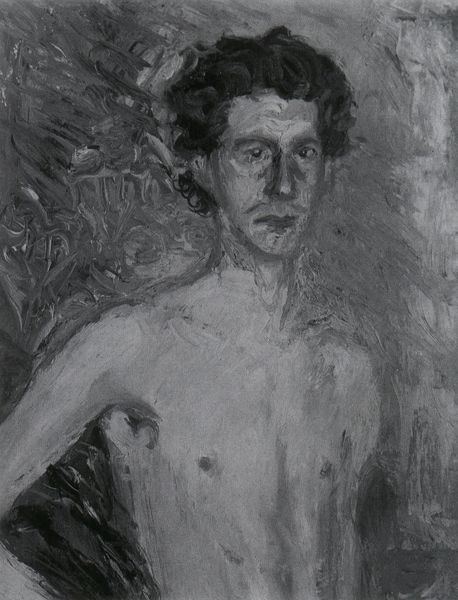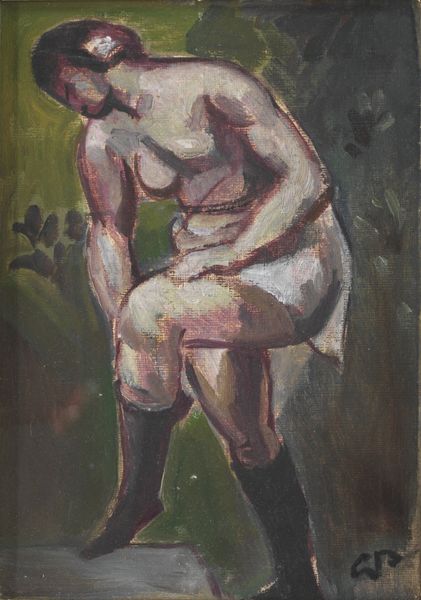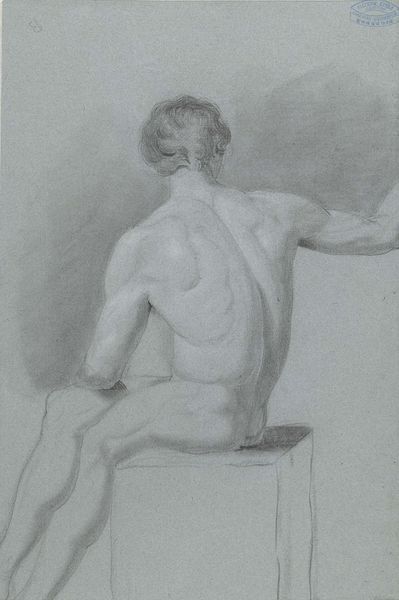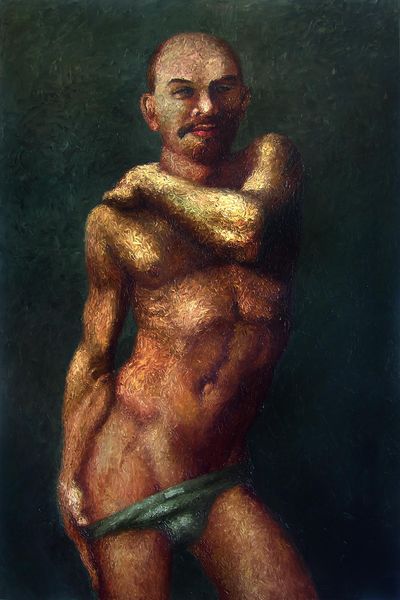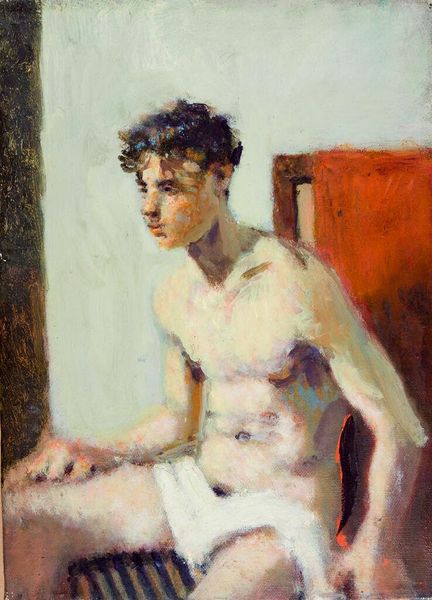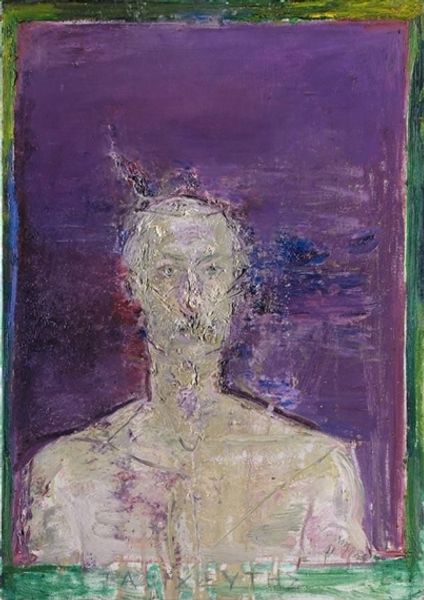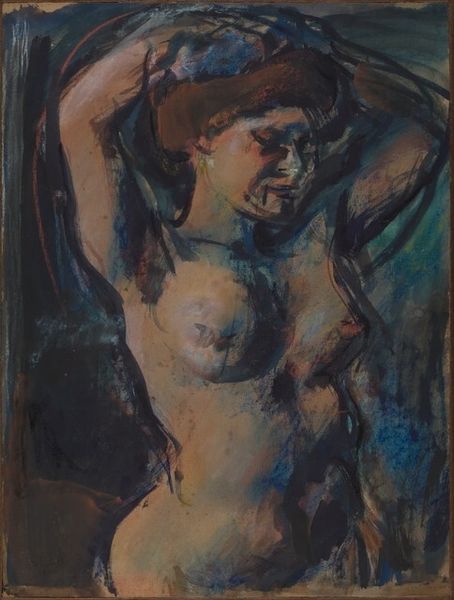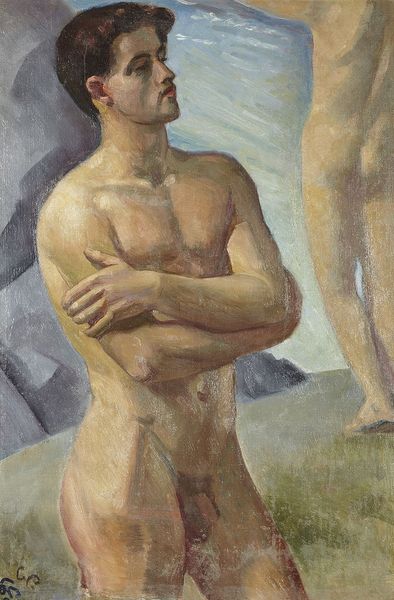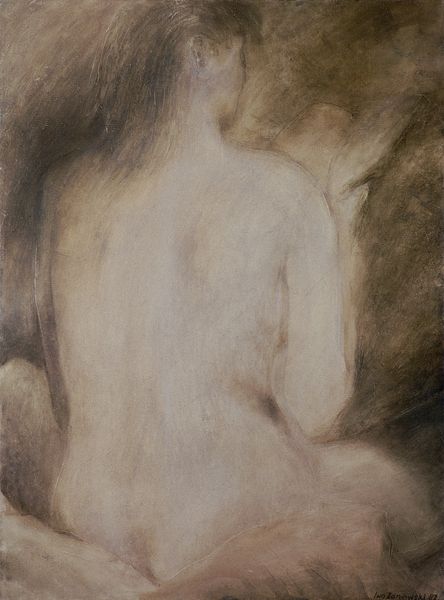
impasto, pastel
#
portrait
#
self-portrait
#
figuration
#
oil painting
#
impasto
#
portrait reference
#
neo expressionist
#
neo-expressionism
#
pastel
#
portrait art
Copyright: Avigdor Arikha,Fair Use
Curator: Avigdor Arikha’s "Self Portrait in Profile from the Back," created in 1990, offers us an intriguing view, rendered in pastel. Editor: It strikes me as incredibly vulnerable. The artist is turning away, exposed, almost hesitant to reveal himself. Curator: Arikha’s oeuvre, particularly during this period, frequently confronted notions of identity and the male gaze, often with a subtle critique of traditional portraiture. He seemed less interested in portraying a romanticised or powerful image, instead offering a raw glimpse into his own self-perception. Editor: Absolutely, you sense that struggle. The body is present, almost clinically observed, while the head turned sharply suggests a psychic discomfort. Look at the colours – that muted palette, primarily pinks and grays against the stark background. The flesh isn’t idealised, but exposed with all the marks of ageing. There's a sense of performance involved, as he portrays the male body with self-awareness. Curator: We see here the impact of the New Expressionist movement; note the raw, expressive brushwork that deviates from any classical sense of flawless execution. The history of portraiture becomes subverted when we think of those stately depictions throughout Western art, especially when considering representations of male identity. Editor: How fascinating that the artist chose this perspective for his self-portrait. He consciously positions the audience to gaze upon his back rather than engage with his face, perhaps denying a conventional reading of the artist’s ‘persona’. Curator: His choice to depict himself from behind could also signal a resistance against external validation, highlighting instead the internal complexities of identity. The pose becomes a sort of boundary, a defiance against our urge to ‘know’ him. Editor: Indeed, what might read at first as weakness could also symbolize the very nature of an artistic exploration; a refusal to simply fulfill the viewer's expectations of portrayal. It’s a clever manoeuvre. Curator: Absolutely. Arikha encourages us to confront not just his image but the complex dialogues around perception and self-representation itself. Editor: Well said, It's an honest portrayal. Stripped bare both physically, in the representation of the nude body and metaphorically by rejecting any sense of traditional presentation.
Comments
No comments
Be the first to comment and join the conversation on the ultimate creative platform.
